Bankers usually check to make sure businesses have adequate hazard insurance in case a building or essential equipment is severely damaged or destroyed.
However, another form of insurance that could be just as important, if not more so, is a business interruption policy. If a borrower incurs a loss to income producing assets, there might not be a business left by the time hazard insurance restores the property.
Replacing Lost Sales and Income
Also known as business income insurance, business interruption insurance covers the loss of income suffered by a business if it is forced to close for an extended period of time after a disaster. This coverage provides cash to replace lost sales and income until the business can rebuild post-disaster.
Business interruption policies are usually included in a package with hazard insurance, or as part of a comprehensive business owner’s policy. The policy usually cover lost profits that the business would have earned had it been open, operating expenses during the downtime, and costs of temporary facilities used to carry on operations in the interim. However, there can be lots of differences between business interruption policies. “Business interruption” may be defined differently between insurers, so make sure borrowers are aware of the exact level of coverage so there are no surprises if a disaster occurs.
Disability Insurance for Professionals
For businesses that rely on one or a few key employees, one of the greatest threats to their income is disability. Bankers often require that professionals have key person insurance, but this only provides coverage if the owner dies. Statistically speaking, individuals are much more likely to become disabled than they are to die.
Disability insurance policies can also vary significantly. Two of the main things to examine are the length of the waiting period and the definition of disability. Most disability policies include a waiting period of 30, 60 or 90 days before payments begin, so determine whether or not the professional has enough liquid funds to sustain the business and cover his or her personal expenses until the insurance kicks in.
The policy’s definition of disability is especially critical. Some policies define disabled as being unable to perform any work at all, while others define disabled as being unable to perform the tasks required in a professional’s specific occupation. For example, if a dentist were physically able to flip burgers, he might have to do that if his policy doesn’t define his specific occupation.
Liquidity
Finally, if a borrower is not carrying adequate business interruption or disability insurance, determine if they have sufficient liquid assets to carry on operations for a significant time period until they can return to business as usual.
Contact us for more details about business interruption and disability insurance requirements for borrowers: 417-881-0145.

